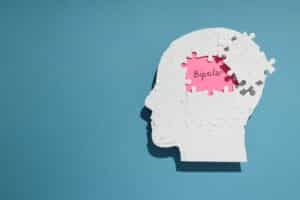Approximately 40 million Americans struggle with anxiety disorders.
Are you one of them? Are you interested in learning about holistic anxiety treatments rather than using more traditional methods?
If you’re looking for different treatments for anxiety that don’t require medication, keep reading. Listed below are 10 effective solutions you can implement today.
1. Exercise
When it comes to anxiety treatment without medication, regular exercise is one of the best coping mechanisms you can start using.
Exercise produces endorphins. Endorphins are chemicals that boost your mood and help you to feel happier and more at ease.
The good news is that you don’t have to do an intense Crossfit workout or run a marathon to enjoy the mood-enhancing and anxiety-reducing benefits of endorphins. Any type of exercise is beneficial, even low-impact workouts like walking or yoga. Just pick something that you love and try to do it regularly.
2. Talk Therapy
You might not want to use medication to manage your anxiety symptoms. However, if you seek out a therapist who can help you talk through your experiences and identify the source of your anxiety, you may find a lot of relief.
Talk therapy is one of the most effective anxiety treatments out there. Therapists use a variety of techniques, such as Cognitive Behavioral Therapy, to help patients change their behaviors, learn coping mechanisms, and get to the bottom of their problems.
3. Hypnotherapy
In addition to more traditional therapy techniques like talk therapy, hypnotherapy can also be beneficial when you’re struggling with anxiety.
Keep in mind, hypnotherapy is very different from the hypnosis that’s used at carnivals to embarrass an audience member. You won’t be quacking like a duck for an hour when you go to a hypnotherapy appointment.
Instead, your therapist will help you get into a very relaxed state. You’ll still be conscious, but your body and mind will be more at ease, so it’ll be easier for you to open up about what you’re experiencing and how it makes you feel.
4. Reduce Caffeine Intake
Many people find that when they reduce their caffeine intake, or perhaps eliminate it altogether, their anxiety symptoms improve. Caffeine is a stimulant, and it can exacerbate many of the physical symptoms of anxiety, such as a racing heart rate or sweaty palms.
If you drink caffeine regularly, consider taking a break from it. Wean yourself off slowly so you don’t deal with withdrawal symptoms, then compare how you feel without caffeine to the way you feel when you’re consuming it daily.
If you notice that your anxiety is not as intense, you may want to continue living caffeine-free.
5. Reduce Alcohol Intake
Alcohol can also have an impact on anxiety levels.
Some people self-medicate with alcohol, which is a depressant, to try and minimize their anxiety symptoms (especially if they feel anxious before bed). The problem with this, though, is that they then become dependent on alcohol. As a result, when they don’t have it, their anxiety symptoms may get worse.
6. Supplement with Omega-3 Fatty Acids
Omega-3 fatty acids are a type of polyunsaturated acid found in foods like fatty fish (such as salmon or sardines), flaxseeds, and walnuts.
Omega-3s are best known for supporting cardiovascular health and reducing blood pressure. However, they’re also good for the brain and help to reduce inflammation, which can contribute to anxiety symptoms.
Research shows that high doses of omega-3s can be very beneficial when it comes to managing anxiety. More research is needed before they can be widely recommended as a treatment option, but so far, the results look promising.
7. Practice Mindfulness
The effects of anxiety can make it hard for us to sit still and be quiet.
Many people who struggle with anxiety feel as though they always need to be moving and doing something. The truth, though, is that taking the time to be still and practice mindfulness (the thing most anxious people want to do the least) can be one of the most powerful tools for combating anxiety.
When you learn to get comfortable sitting, focusing on your breath, and not doing anything else, you may find that you’re more resilient when intrusive, anxiety-producing thoughts arise. You’ll have an easier time being objective and less reactive, too.
8. Join a Support Group
Sometimes, knowing that you’re not alone in your anxiety can make all the difference. Consider joining a support group where you can meet with others who understand your struggles.
Support groups allow you to talk about your experiences, learn from others, and remember that you’re not the only one dealing with symptoms of anxiety. It may feel a little awkward to talk about your challenges at first. Over time, though, you’ll start to feel more comfortable opening up.
9. Balance Your Blood Sugar
If you struggle with anxiety, try not to let yourself get too hungry during the day. When you go too long without eating, your blood sugar drops. Low blood sugar, in turn, can trigger feelings of anxiety in some people.
Aim to eat every 3-4 hours and focus on blood sugar balancing foods that contain healthy fats and fiber. These foods will keep you fuller longer, and they’ll help you to avoid blood sugar spikes and crashes.
10. Write in a Journal
Finally, if you’re looking to learn how to treat anxiety, it helps to keep a journal.
Writing in a journal each day makes t easier for you to identify patterns and figure out what does and doesn’t trigger your symptoms. For example, do you feel anxious every day on your way to work or when it’s time to go to bed?
When you pick up on these patterns, you can then start making changes to try and correct the issue, rather than simply relying on a medication to manage the effects of anxiety.
Start Treatments for Anxiety Today
There are lots of treatments for anxiety that don’t require medication. Do you want to work with a professional who utilizes holistic solutions to anxiety?If so, we’re here to help at Southern California Sunrise Recovery Center. Contact us today to learn more about our anxiety treatment programs.







